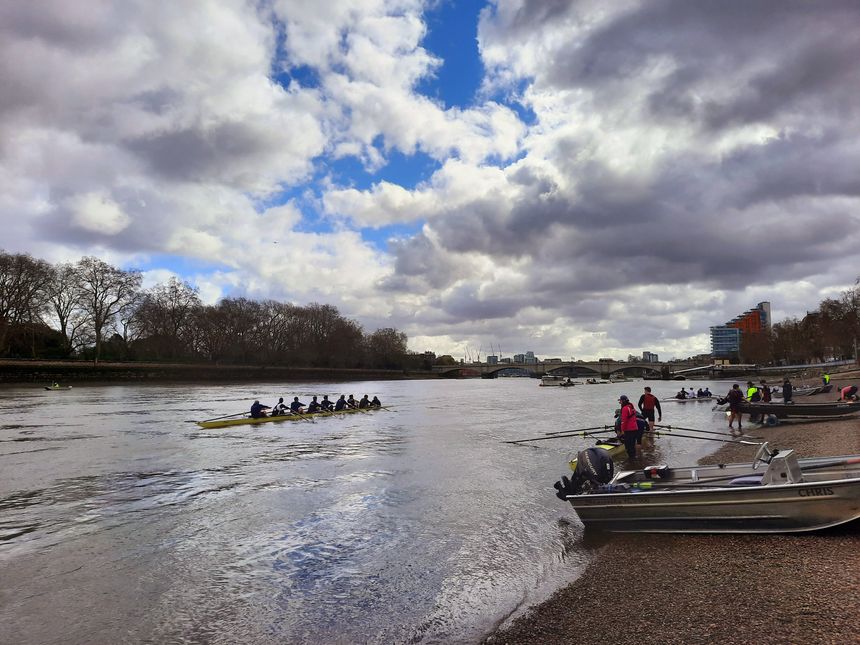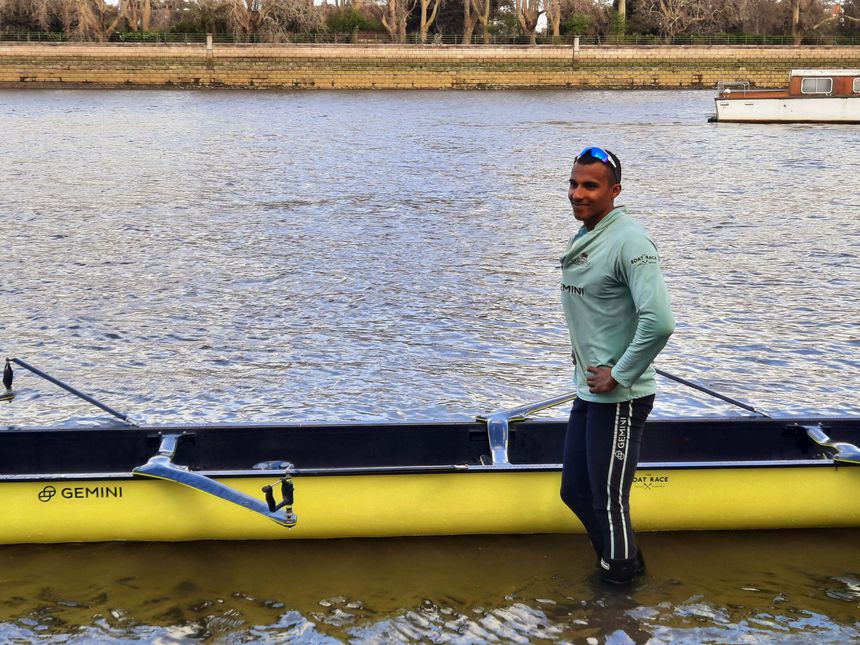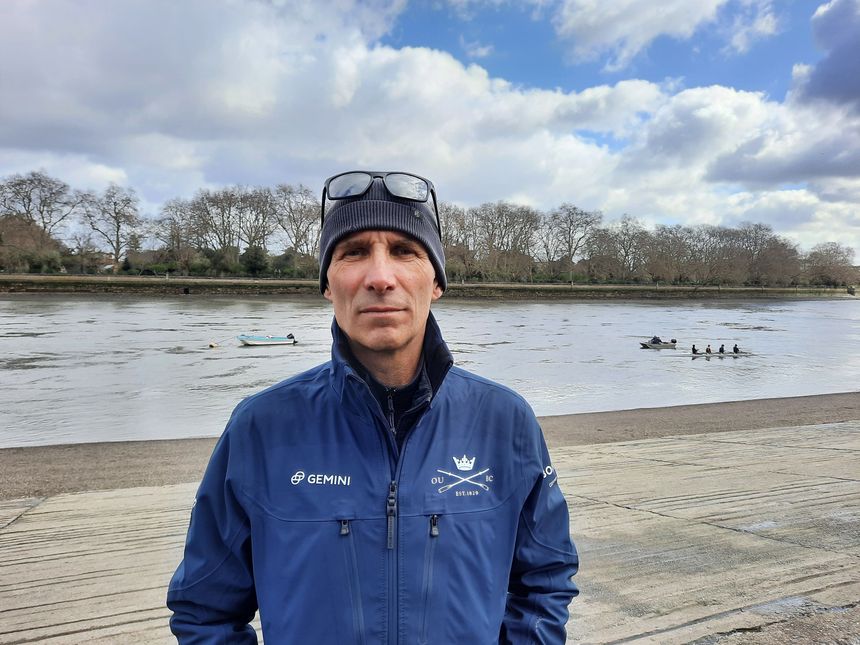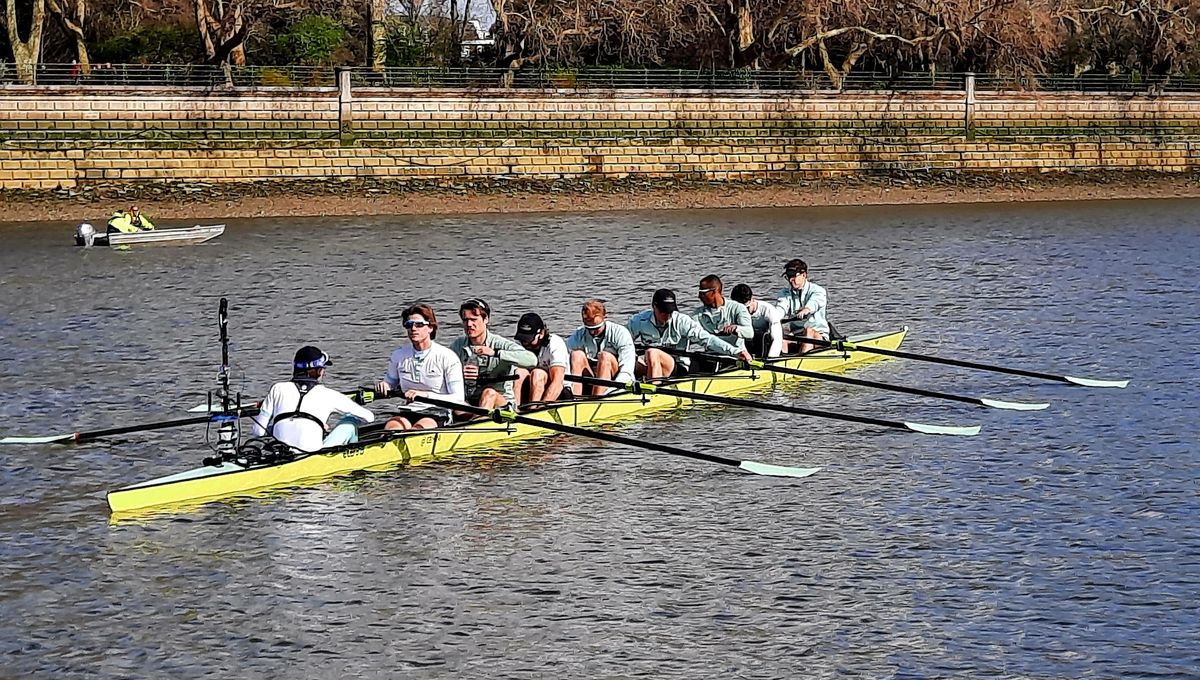On the banks of the Thames, at the foot of the arches of Putney Bridge, the starting point of the race, these are the last training sessions and the final adjustments. In London, this Sunday is not a day like the others: “The Boat Race” (the boat race as it is officially called in all simplicity, as if there could not exist another) is that of a life, the one we must not lose.
“This race is popular because there is a winner and a loser, explains Matt Smith, the referee for the women’s race. For the one who loses, it’s horrible. And for whoever wins, it’s an incredible moment of glory. It is as if these rowers entered an arena. Never again will they have the opportunity to experience a moment like this in their lives. They may have kids and a great job, but they won’t have a bigger moment than this.“

It must be said that it has been going on since 1829. When two friends, one in Oxford, the other in Cambridge, set off a challenge on the Thames. The tradition has continued year after year to become “one of the craziest moments in sports in England”, as summarized by Matt Smith. “The Boat Race” has managed to be an increasingly high-level sporting event. For only the fourth time in history, a Frenchman will be on the water.

After William Henri Waddington in 1849, François de Rancourt in 1963 and Bastien Ripoll in 2006 (the latter was the first to run for Oxford), Noam Mouelle wears the Cambridge Light Blue jersey (opposite Oxford Dark Blues). He joined the boat of eight rowers of the famous university. The news fell on March 6. “We have to train 12 times a week, so twice a day since we have a rest day, says the 21-year-old young man who has been preparing a doctorate in physics since this year at the prestigious university. This consists of rowing on the water or indoors or doing weight training. The challenge is that you have to do all that in addition to the lessons.”
450 million viewers for The Boat Race
Noam Mouelle has been rowing since the age of 9, mainly in his club at Perreux-sur-Marne in Val-de-Marne. He also attended the previous edition of “The Boat Race” as a spectator. Here he is now at the heart of the event. “We no longer prepare the technical or physiological aspect, he continues. One of the things we’re told is that you have to be able to tune out the crowd and the noise and focus on the stroke.”

The organizers expect 500,000 people on the banks of the Thames, between Putney Bridge and Mortlake, near Chiswick Bridge, west of the English capital. They also claim 450 million viewers worldwide, from Mexico to Australia. All eyes on an increasingly demanding race. “It’s quite hard because it’s almost seven kilometres, it’s much longer than what you can usually do where you cover two kilometres, details Sean Bowden, the head coach of the Oxford crew. There are only two boats, it’s very tactical, you have to attack, not remain passive. And then there’s the weight of history, there’s a lot of pressure.”
Noam Mouelle knows it: it’s about the sport of glory, even if “academically, there is no real rivalry with Oxford. In my thesis project, for example, I work with people from Oxford. But in sport and especially in rowing, the rivalry is very intense.” Cambridge currently leads 85 wins against 81 for Oxford (there was only one draw in 1877). The prestige of one or the other of the two most famous universities in the world is being played out on the capricious waters of the Thames.

